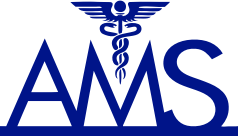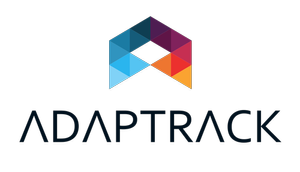Proactive Risk Management: Empowering Clinicians to Enhance Patient Safety and Mitigate Liability Risks
In today’s complex healthcare environment, clinicians face mounting pressure to deliver high-quality care while managing the numerous risks associated with medical liability. Traditional risk management strategies often rely on reactive measures that address issues only after they occur. However, there is a growing shift towards proactive, clinician-centric approaches that redefine how healthcare professionals handle liability. Innovative tools like amplifi are at the forefront of this transformation, offering advanced AI-driven solutions designed to support clinicians in navigating risk more effectively.
Prioritizing Risk Awareness: Identifying and Managing Liability Traps
A cornerstone of proactive risk management is the ability to identify and manage potential risks before they escalate. Clinicians encounter a variety of common liability traps, such as documentation errors, missed follow-ups, and communication breakdowns. These challenges can significantly impact patient outcomes and lead to increased legal exposure if not addressed early.
To combat these issues, proactive risk management emphasizes education and awareness tailored to the unique demands of each specialty. Clinicians benefit from resources that highlight frequent claims drivers and provide actionable insights into best practices. By fostering a deep understanding of these high-risk areas, clinicians are better equipped to implement preventative measures that safeguard their practice. This forward-thinking approach helps clinicians refine their decision-making processes, enhancing both patient care and risk mitigation.
Strengthening the Clinician-Patient Relationship: Building Trust to Reduce Risk
The relationship between a clinician and their patients is one of the most powerful tools in risk management. Strong, trust-based connections not only improve the quality of care but also serve as a critical defense against potential litigation. When patients feel respected, heard, and well-informed, they are significantly less likely to pursue legal action, even in situations where outcomes are not as expected.
Investing in these relationships requires a commitment to clear and compassionate communication. Clinicians can greatly reduce their risk exposure by engaging with patients through empathy, active listening, and transparency. The ability to navigate challenging conversations, especially following unexpected outcomes, can transform potentially adversarial situations into opportunities for collaboration and trust-building. Proactive communication training and support can empower clinicians to manage patient expectations effectively, address concerns promptly, and maintain strong patient relationships.
Enhancing Supervisory Roles: Active Engagement and Comprehensive Documentation
For clinicians who supervise other healthcare providers, such as physician assistants or nurse practitioners, proactive engagement is essential. Supervision introduces specific risks that require a hands-on approach, emphasizing active involvement in clinical decision-making and meticulous documentation. Supervisors play a pivotal role in ensuring that their teams adhere to established protocols, maintaining a high standard of care that minimizes liability exposure.
Effective supervision goes beyond passive oversight—it involves clear communication of expectations, real-time feedback, and thorough documentation of all supervisory activities. By implementing robust supervision practices, clinicians can foster a collaborative and accountable environment that prioritizes patient safety. Training and guidance on these supervisory responsibilities are vital in helping clinicians navigate their roles confidently and protect against potential claims.
Tackling Claims with Education and Prevention
Education sits at the heart of proactive risk management. Clinicians need access to ongoing learning opportunities that equip them with the knowledge to identify and mitigate risks before they lead to claims. Understanding the legal landscape, from managing patient discrimination allegations to handling complex care scenarios, is crucial in reducing liability.
Proactive risk management focuses on prevention through accessible, relevant educational resources that meet clinicians where they are. By engaging with real-world scenarios and case studies, clinicians can refine their approach to care, avoid common pitfalls, and apply preventive strategies in their daily practice. This proactive stance empowers clinicians to take charge of their risk management, enhancing their ability to deliver high-quality, patient-centered care.
Conclusion: Embracing Proactive Risk Management with amplifi
Proactive risk management is not just a strategy; it is an essential shift in how clinicians approach their roles, focusing on safety, transparency, and continuous improvement. Tools like amplifi are revolutionizing this space by providing the support clinicians need to manage their risk effectively. Amplifi’s clinician-first design aims to empower healthcare professionals with the insights and resources necessary to navigate liability challenges confidently.
By partnering with amplifi, clinicians can take proactive steps to reduce their liability exposure while enhancing their practice. Furthermore, amplifi can integrate seamlessly into a clinician’s busy day, offering tailored insights and content relevant to their practice. By leveraging amplifi, clinicians can proactively identify risky practice Blindspots and thus benefit from the enhanced perspective gained through reflective practice.
Explore reflective continuing education opportunity with amplifi
Patient Communication amplifi Case
Media Contact
Samuel Taggard, AMS Management Group, 860.930.3216, staggard@bpmp.com
Alex Welch, AMS Management Group, 754.264.1022, awelch@bpmp.com




